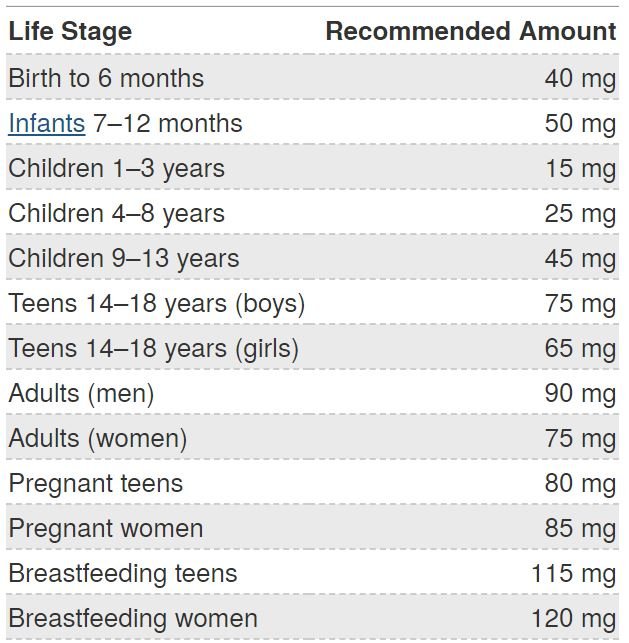turmeric Anti-Aging effects
Top #7 Turmeric: Anti-Aging effects If curcumin can really help prevent heart disease, cancer and Alzheimer’s, it

Vitamin C is most known of all vitamins. It is involved in many functions, including tone and immunity. What is it for precisely? In what foods is it found? What are our needs? How to avoid deficiencies? Healt-Goal answers up.

Vitamin C, or ascorbic acid, is naturally present in some fruits and vegetables. Above all, it helps to fight against oxidation and to strengthen our immune system. However, our body does not know how to synthesize it or store it. It is therefore essential to absorb it regularly to stay in good health.
This antioxidant vitamin protects against cellular aging. It supports immunity by protecting immune cells from free radicals, and by stimulating the activity and mobility of white blood cells. It allows the synthesis of collagen, therefore the maintenance of the skin, gums, cartilage … It also contributes to the synthesis of adrenaline and norepinephrine and improves iron absorption. Combined to other factors it helps fighting against overweight, it helps burn fat and regulate blood sugar.
The amount of vitamin C you need each day depends on your age. Average daily recommended amounts for different ages are listed below in milligrams (mg). moreover vitamin C requirements are increased in certain pathological situations (fracture, infection, cancer treatment, diabetes, etc.), with certain lifestyles (smoking, intense sporting activity, heavy alcohol consumption), during pregnancy and breastfeeding or in the event of malabsorption (celiac or Crohn’s disease).

If you smoke, add 35 mg to the above values to calculate your total daily recommended amount. It is strongly recommended to ask to your doctor the righ daily intake if you smoke.
It is found in a wide variety of fruits, vegetables, but also aromatic herbs: blackcurrant, fresh or dried parsley, fresh thyme, kale, peppers, broccoli, kiwis, pesto, saffron, red fruits, oranges, watercress, white cabbage, grapefruit or even pineapple. Vitamin C is the most sensitive of all vitamins. It degrades very quickly in the light. Go always for seasonal fresh fruits and consume it as soon as possible in order to get the best of them.

To avoid vitamin C deficiencies, a supplement intake is recommended for low consumers of fruits and vegetables, diabetics and people with celiac or Crohn’s disease. Increase your daily intake if you are practicing an intensive physical activity or you suffer from fracture. It is also recommended in case of excessive alcohol consumption.
It is also better not to exceed 500 mg per day: even if the excess is eliminated in the urine, too large doses can cause digestive disorders or kidney stones.
Top #7 Turmeric: Anti-Aging effects If curcumin can really help prevent heart disease, cancer and Alzheimer’s, it
Top #6 Arthritis Patients Respond Very Well to Turmeric Supplements Share on facebook Share on twitter Share
Top #5 Improved Antioxidant Capacity Share on facebook Share on twitter Share on pinterest Share on email
Top #4 Turmeric could Be Useful in Preventing and Treating Alzheimer’s Disease Share on facebook Share on
Top #3 Turmeric Can Help Prevent (And Perhaps Even Treat) Cancer Share on facebook Share on twitter
Top #2 Turmeric Lowers Your Risk of Heart Disease Share on facebook Share on twitter Share on
Statements on this website have not been evaluated by the Food and Drug Administration. Products are not intended to diagnose, treat, cure or prevent any disease. If you are pregnant, nursing, taking medication, or have a medical condition, consult your physician before using our products.
Disclaimer: this site is not a part of the Facebook™ website or Facebook Inc. Additionally, this site is NOT endorsed by Facebook™ in any way. FACEBOOK is a trademark of FACEBOOK, Inc.

Your Privacy Is Important To Us
This website uses cookies so that we can provide you with the best user experience possible. Cookie information is stored in your browser and performs functions such as recognising you when you return to our website and helping our team to understand which sections of the website you find most interesting and useful.
Strictly Necessary Cookie should be enabled at all times so that we can save your preferences for cookie settings.
If you disable this cookie, we will not be able to save your preferences. This means that every time you visit this website you will need to enable or disable cookies again.
More information about our Cookie Policy